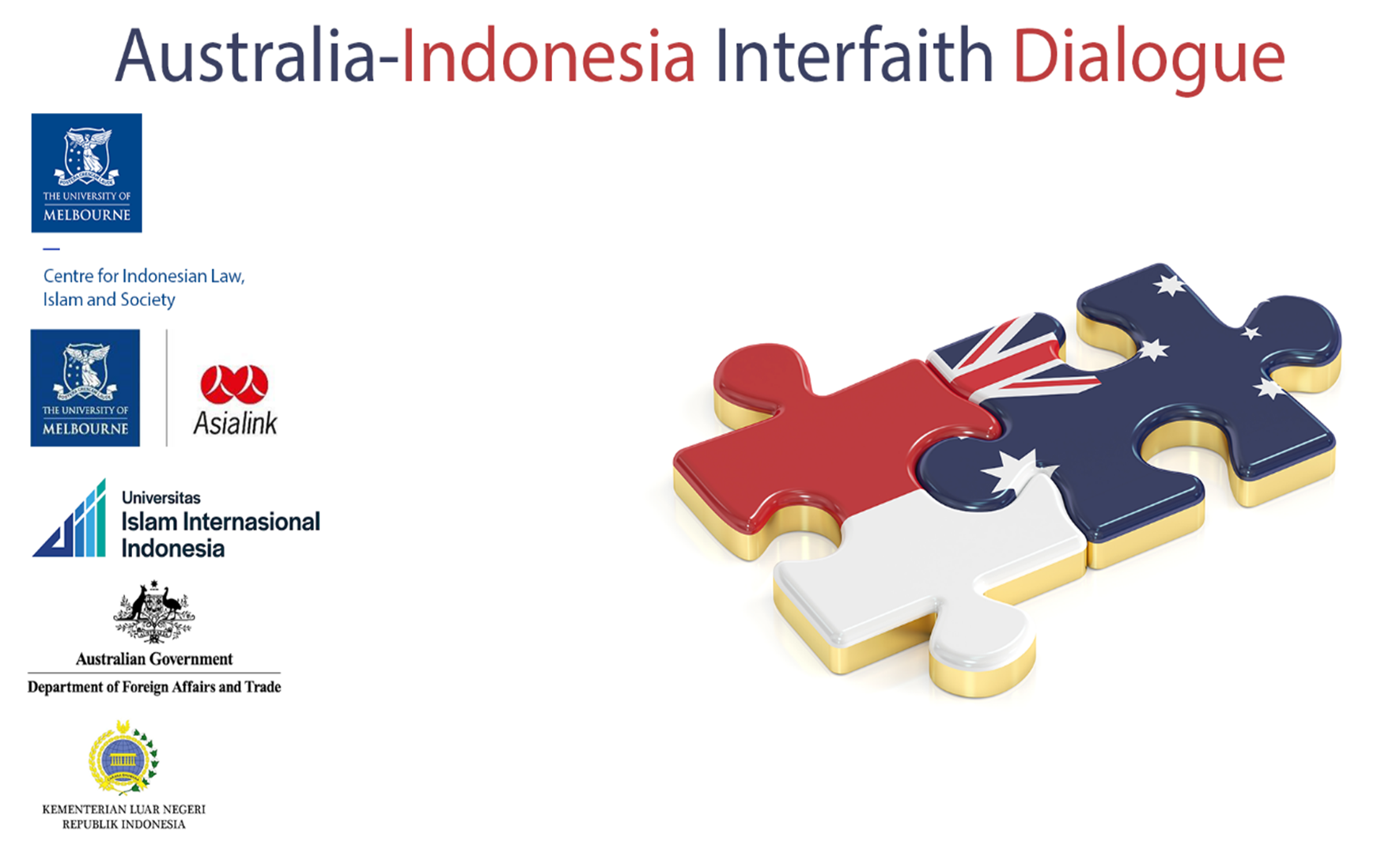Australia Indonesia Interfaith Dialogue
Background
The Australia Indonesia Interfaith Dialogue was established under the auspices of Indonesian President Joko Widodo and former Australian Prime Minister Scott Morrison to promote mutual understanding, foster respect, and achieve peace-building goals. Following the first successful interfaith dialogue in 2019, the Australia and Indonesian Governments highlighted continued support for the Dialogues in their Plan of Action for the Indonesia-Australia Comprehensive Strategic Partnership (2020-2024).
The 2022 Dialogue was centred around three agreed and pressing issues, focusing on the ways different faith communities in each country:
1. Interact with youth and social media
2. Approach climate change and other environmental issues
3. Face the challenges of the COVID19 pandemic.
2022 Conference Report
2022 Dialogue Overview
Program planned jointly with regular communication between the Indonesian and Australian co-chairs
- Presentations and contributions from 19 expert speakers and chairs from at least 6 faith groups
- 32 Australian and Indonesian interlocutors with significant expertise in the themes actively participated with lively questions and information exchange in the chat
- Total of 79 participants including observers
- Dialogue recorded and permission gained for distribution to wider audience
- Simultaneous interpretation provided by expert team
- Support for deeper engagement and continuing sharing of experiences, research findings, new models and emerging challenges and opportunities, particularly face to face
- Summative messages from the Co-Chairs, Professor Tim Lindsey and Professor Jamhari Makrut
Summary: Environment and Faith
The notion that we are part of the world, not apart from it was a common, shared perception among the faiths. That humanity, as part of the natural world, has a sacred responsibility to tend the earth seems to be an idea that all of the faiths could trace back to their most ancient traditions.
The panel revealed a range of different approaches to the environmental crisis facing the globe, many of them designed specifically to suit the specific conditions of a local community, but also wider multilateral attempts to negotiate a coordinated and equitable response to climate change, even as it is unfolding.
Summary: Faith and the Pandemic
The panel shared different and, at times, very personal experiences of the damaging impact of Covid-19 in different societies, including for women in particular. The speakers also emphasised the role of faith in supporting healing. They included insights into how illness and adversity can deepen religious encounters, revealing the value of faith in a time of crisis.
The speakers shared the idea that we are all connected to one another and have not just individual responsibility but also collective responsibility to care for one another. In addition, they agreed there was plenty of evidence of the resilience of faith communities in adapting to the isolation and suffering created by the pandemic - some even reported better spiritual health.
Summary: Faith and Youth and Social Media
Panellists emphasised the growing central importance for the youth demographic of faith-based social media influencers, across a huge range of sub-cultures in both countries – including even Muslim gamers. They all agreed that the Internet has become enormously influential as source of faith education and guidance. As one speaker said, faith, youth and social media are three words that may well determine what our collective future will be.
Questions also rose about the double-edged sword of social media - how the Internet is misused, including the use of hate speech to incite inter-religious tensions, and the problems that arise from the anonymity the internet offers, and the echo chamber effect. The was also discussion about how interfaith harmony and tolerance can be maintained in our new digital world, and how faith communities – now increasingly populated by digital natives – can rethink the ways they communicate and work together to defend the meaning and nuances of their traditions in the face of distortion and manipulation.
